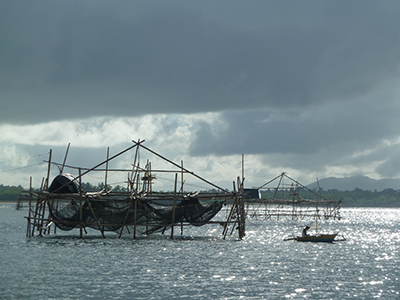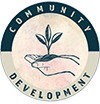ABM Archive Website
THIS WEBSITE CONTAINS ARCHIVE MATERIALS FOR HISTORICAL REFERENCE ONLY
For up-to-date information, including our latest appeals, news, and resources, please visit our current website.
Philippines: Community Capacity Building
 |
| Local fishermen such as this one are being supported by SSLA in Aklan Province. © Lina Magallanes/ABM, 2015. |
 |
This is part of the Community Development Program: Learn more about ABM’s Programs here
Set to benefit over 11,940 people in the Philippines this project improves the livelihoods of community members and their families and, through empowerment, helps to foster a greater sense of community cohesion.
The cohesion has been a new experience. Previously villagers experienced “Kanya-kanya”
the phrase translated as “I mind my own, you mind yours” but now, the community works together.
ABM visited the barangay (village) communities of Songcolan and Palay in Aklan Province on a monitoring visit to witness the benefits delivered to these communities that are participating in
the Integrated Community Development Project, delivered by our partner Episcopal CARE.
The Songcolan barangay formed an official community association of interested villagers, named the Songcolan Seashore Livelihood Association (SSLA), with a total membership of 53 people. These members have met on a consistent basis since the project began, and have appointed a management team who lead the association in shared undertakings. SSLA has also developed a mission statement and has drafted its own policies to guide operations.
Over 33 members have accessed revolving funds in Songcolan in order to support various livelihood initiatives locally. The association has also established a community garden with one community member, Nanay Hopeng, providing the use of her farm lot for free. Nanay Hopeng is a member of SSLA who lost her job when the local prawn processing factory closed down after Typhoon Haiyan. The community garden is reportedly flourishing with proceeds going back to SSLA for its association activities. All funds are being repaid according to SSLA’s agreed policies and the SSLA is on-track to repay the full amount borrowed from Episcopal CARE by the agreed deadline.
Local villagers reported that there was no existing community organisation in Songcolan before SSLA,
and that they used to have a mentality that was more individualistic. Involvement in the SSLA is now helping members to actively consider and support the interests of other people in the community.
The SSLA treasurer, MaryAnn dela Cruz, said SSLA has united their community. During monthly meetings, SSLA members discuss and encourage each other about on-going activities, confirm monthly funds balance (from weekly collection), and roster work in the community garden, among other things. SSLA Chair, Jovanna, said the monthly meetings were a wonderful open forum where discussions helped to correct any issues and maintain good momentum in the project.
Donors to this project are building both individual and collective gains for families in the Philippines through the use of small loans that can create tangible change.
PH001IF needs $40,000 in 2017 (tax-deductible)
| This project receives partial funding from the Australian Government. |
HOW TO DONATE
You can make an online donation to this project. ![]()
Alternatively, for donations by cheque/money order (made out to the Anglican Board of Mission – Australia), telephone or email, view contact details here. Please don’t forget to include the project name and/or code with your payment details.
Gifts to ABM will be applied to the support of project(s) selected. In the unlikely event of the project being oversubscribed or not proceeding to completion, donations will be applied to a similar project to the one(s) selected.
PROJECT UPDATE
November 2017 – Empowered through Disability Rights Education. Judith is a single mother and a farm labourer. She also has a physical disability. Read more.
February 2017 – For the last 14 months, the Episcopal CARE Foundation (E-CARE) have experienced an exciting shift in their approach to disability inclusion. Read more.
The inspiring and thought provoking story of a community in the Philippines that sent back the money for their water project when they decided they could raise the money themselves. This video explores the concept of Asset Based Community Development, which emphasises the strengths and existing assets of communities rather than the needs.
< Back


